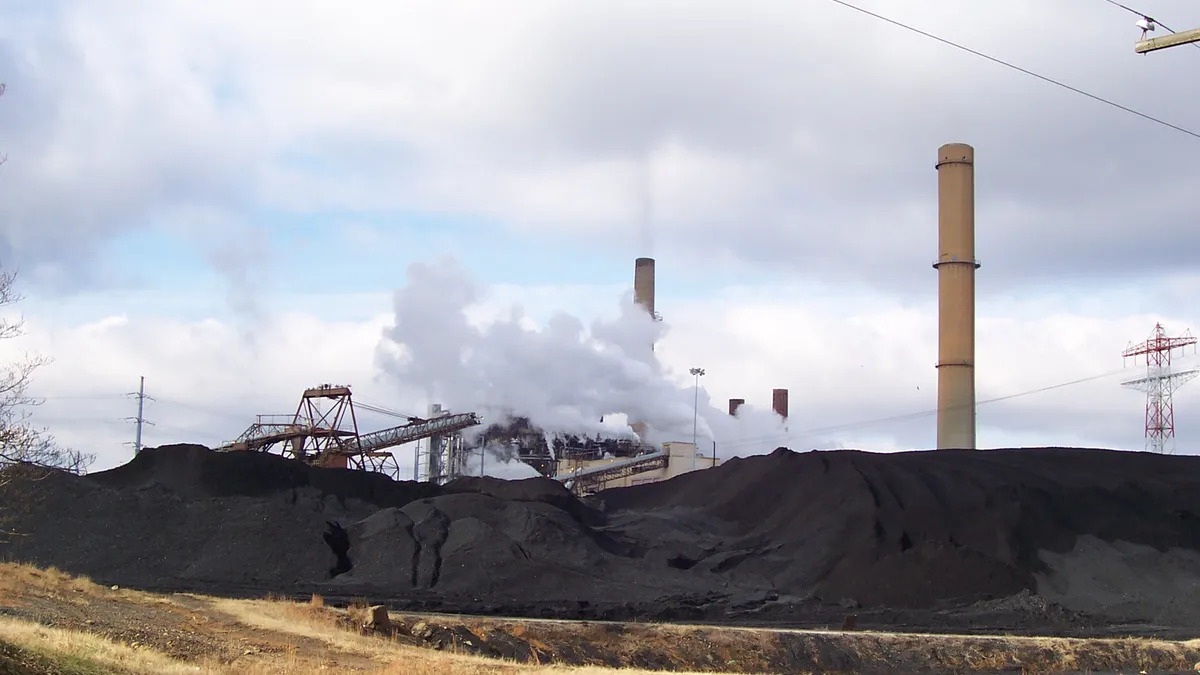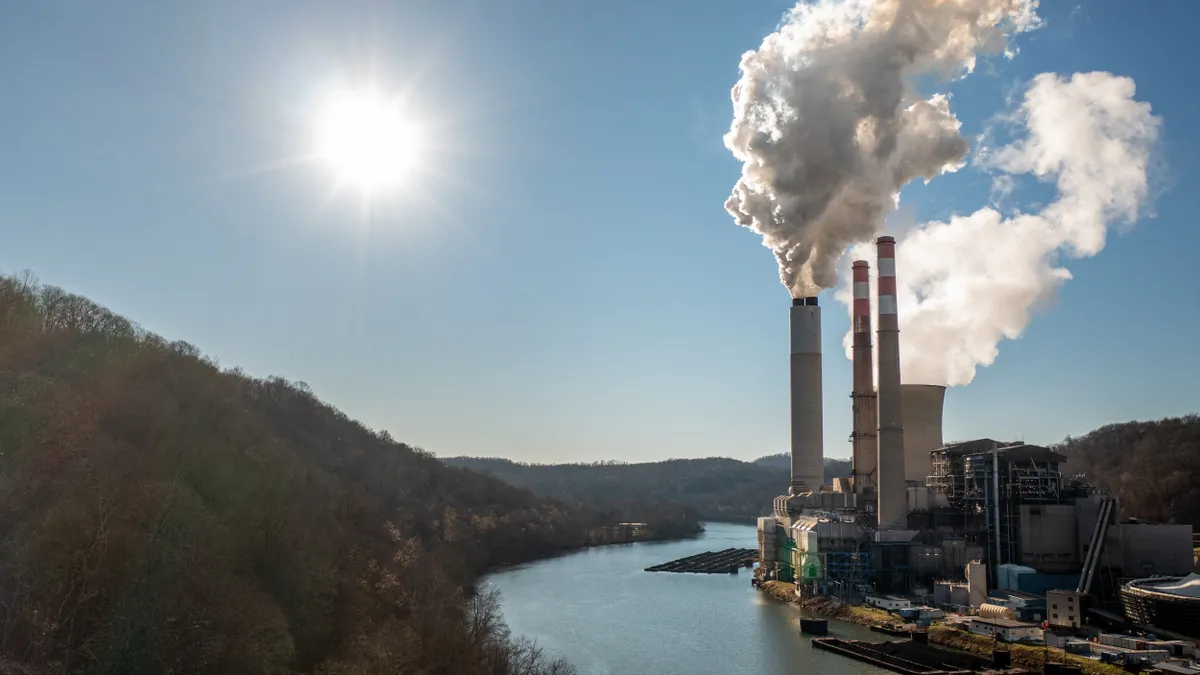On Wednesday, the Virginia Air Pollution Control Board voted 4-1, with two abstentions, to move ahead with Republican Gov. Glenn Youngkin’s proposal to exit the Regional Greenhouse Gas Initiative, advancing the proposed repeal to the public comment process.
Before the vote, the state’s acting deputy secretary of natural and historic resources, Travis Voyles, addressed the board, calling RGGI a “regressive energy tax” and stating that the income the state has received from selling carbon allowances at auction will be made up elsewhere in the budget.
Board member Staci Rijal, who ultimately voted against the proposal, asked Voyles if the state’s plans for alternative funding to replace RGGI income will provide “anywhere near the scope and scale of $452 million,” the approximate amount that the state has raised so far through RGGI auctions.
“We’re all going to find out next week,” Voyles said, referring to an upcoming hearing in the state legislature where Youngkin’s amendments to the 2022-2024 budget will be presented.
Board members Lornel Tompkins and Hope Cupit abstained from the vote due to concerns that the air board does not have the legal authority to take steps to repeal Virginia’s participation in RGGI, which was accomplished through legislation. Jay Holloway, David Hudgins, James Patrick Guy II and Russell Mait — each nominated to the board by Youngkin — voted yes.
Both Cupit and Tompkins noted that a representative from the state attorney general’s office had said the board has the authority to take this particular action, but they abstained anyway, with Cupit saying she disagreed with the attorney general’s assessment.
The attorney general’s office took a different stance in a March opinion that advised the Youngkin administration that it could not lawfully withdraw Virginia from RGGI, according to the Southern Environmental Law Center, which is suing to compel a public release of the document. SELC says that though the opinion is currently being withheld, its contents were disclosed at an April air board meeting.
Nate Benforado, a senior attorney with the SELC, says that the process of fighting this repeal will continue over the next year as the Youngkin administration aims for a December 2023 withdrawal. After the public comment period concludes, the air board will take a final vote on the withdrawal.
“It’s in the administration’s court right now, so we will have to see what they do in this next phase and how they respond to the public’s concerns over this repeal effort, and whether the board actually approves it,” Benforado said.
He anticipates that once the Virginia general assembly reconvenes in January, there also will be legislative efforts to repeal the state’s RGGI membership, as there were in the previous session.
“But until that law has changed, that law is on the books, and the governor and the air board need to abide by that law, which requires Virginia to continue participating in RGGI,” Benforado said.
Benforado added that the “public has spoken loudly and clearly in favor of RGGI,” and the Youngkin administration has “brushed aside what Virginians have said they want.”
Voyles acknowledged the controversy surrounding the proposal when he presented it to the air board, saying that a Virginia regulatory town hall meeting that introduced the withdrawal received 51 comments in support and 730 against.
Substantive comments in support of the withdrawal were submitted by Dominion Energy and the Virginia Manufacturers Association, Voyles said, while 10 groups, including the International Emissions Trading Association and SELC, commented against it.
In a comment to Utility Dive, Voyles called the air board’s decision a “great step forward” and said that RGGI “is not necessary to fund important programs on resiliency and energy efficiency.”
“The Administration will continue to work with the General Assembly and stakeholders to provide direct funding and coordination for flood resiliency in a way that is transparent and not a hidden tax on Virginians,” he said.























